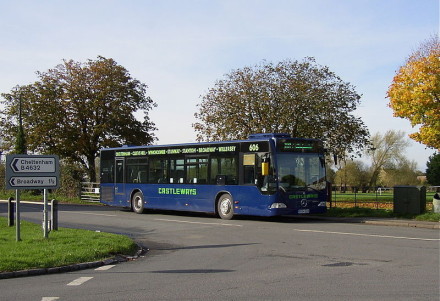
This is a tale of two bus stops. They are both in my city of Cambridge, but they could be anywhere, because the same problems can be found all over the country. Our bus system isn’t delivering the 21st century transport solutions we need – which is why, very slowly and cautiously, even the current Government is finally having to admit that something has to change. Before the election, Labour promised the biggest shake-up in the bus industry in years. To the astonishment of a puzzled bus industry who thought they had seen off what they saw as a threat, it may still be coming, and Labour will be pressing to ensure that reform is up to the challenge we face.
But back to those bus stops. One has many passengers – but no buses. The other has buses, but few passengers.
On a traditional council estate which used to have a bus service running through, there are still bus stops and shelters, and passengers who want to use the bus, but there’s no bus. Why? The bus company doesn’t want to divert through the estate to pick up pensioners, with their bus passes, who need to go shopping or to medical appointments. Despite petitions and protests, there is nothing that councillors or anyone else can do. The bus company which is effectively a monopoly operator helpfully point out that there is nothing stopping anyone else setting up a bus company… other than a few million quid, of course!
The other bus stop is in a busy part of the city, virtually outside my front door. But although I sometimes use it, none of my neighbours do. And with good reason – it goes to the city centre and to the station, but if you’ve got a train to catch or an appointment to keep, you wouldn’t risk it. It takes me 35 minutes to walk to the station, but at least I know I will get there on time. The bus, on a 20 minute frequency (10 minute when we had a Labour government, but that’s another story) can get you there in fifteen minutes – or maybe half an hour, or maybe forty minutes, who knows?
So some people walk or cycle and others use cars and taxis often adding to the congestion which makes the bus so unreliable.
Cambridge is frequently hailed as a bus success story – and compared to other places that’s objectively true. But the inability to match local needs to services just shows how much needs to change. We’ve had the free market experiment since the 1980s and it isn’t giving us the service we need – and if I’m complaining about urban services, I’m well aware that it is an even more depressing story outside cities and towns. Pressures on local council finances hit many previously subsidised routes very hard, frequently leaving vulnerable people isolated. The Government has, at last and after some equivocation, stuck to its commitment to honour the free bus pass. But what’s the point of a bus pass if there are no buses left?
At the election, Labour promised that we would spread the successful London bus model to other areas that wanted the same powers, giving local people a real say over timetables and fares. Some operators protested loudly, but now the Government in its Buses Bill is indicating that it too recognises we can’t go on like this. We await their proposals with keen interest – because this is important.
For far too long outside London, catching the bus has rarely been the first or best choice for most people. If we want our congested towns and cities to work, that has to change.
The measure of the Government’s commitment to buses is not confined to its willingness to introduce new legislation, however. A further test will come in the Comprehensive Spending Review when subsidy for bus services, which was reduced by 20% in the last Parliament, could be cut back further or even scrapped entirely – pushing many networks to breaking point.
We will make sure that the importance of buses is recognised in Parliament. When I see the bus stopping at the bus stop to pick up the pensioners who want to go to the local shops, and my neighbours queuing at the bus stop every day to get to the station on time, we will have cracked not only the bus problem, but a large part of the transport problem too – and that’s a big prize. Winning that prize will depend on the policy choices we make in months and years ahead.
Daniel Zeichner MP is a Shadow Transport Minister




More from LabourList
‘Labour won’t stop the far right by changing leaders — only by proving what the left can deliver’
‘Cutting Welsh university funding would be economic vandalism, not reform’
Sadiq Khan signals he will stand for a fourth term as London Mayor